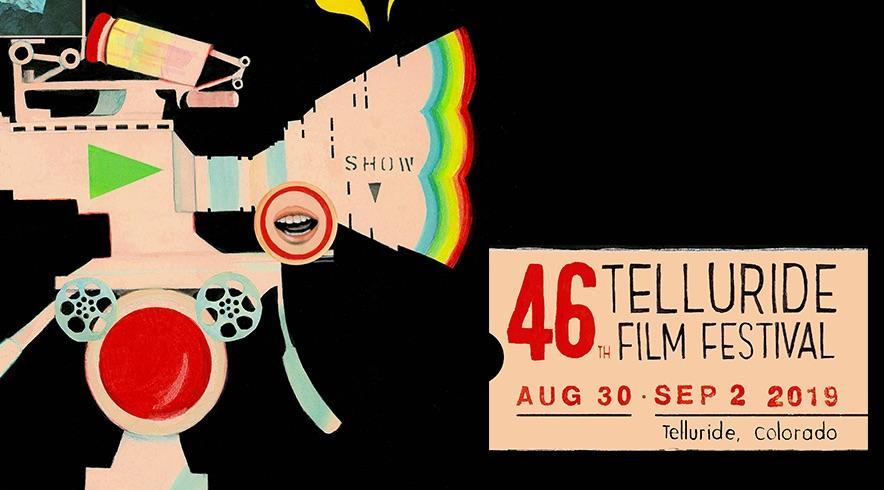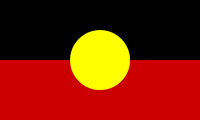September 05, 2019
Telluride Review ‘The Australian Dream’ Is A Stirring Profile Of Athlete & Activist Adam Goodes
Today’s sports superstars must shoulder a number of responsibilities: role models for youth, ambassadors for their sport, and beacons of leadership for their team. Fans demand loyalty, and owners expect not only an inhuman level of dedication, but a return on their investment. Being a star athlete means knowing how to navigate the treacherous waters of press relations and public attention, all while balancing the demands put on you as an icon and maintaining your high-level, athletic skillset to deliver on the confidence being placed in you. Fans and owners can be critical, yet forgiving, however, one thing they cannot abide is a star daring to find fault with the system or sport that they love. This is a lesson Australian footballer Adam Goodes learned the hard way when he began to speak out about the racism that runs rampant in Australian rules football. The prickly story is captured with clarity in the documentary “The Australian Dream,” which gets right to the heart of the issue in the first few minutes, as one of the film’s many interview subjects notes that Goodes, “in the minds of some, committed the greatest sin — the black man who complains.”
Unfussily directed by Daniel Gordon (“Crossing the Line,” “The Game of Their Lives“), the documentary delivers a mostly chronological journey through Goodes’ life and career. Born to a white father and Indigenous mother, his parents split when he was four. His mother raised Goodes and his siblings as a single parent, where the children found sports as an easy outlet to make friends, particularly given their frequent moves. Though he first took a shine to soccer, when there wasn’t a program at Merbein, he pivoted to Australian rules football, and the rest is history. Goodes was drafted into the Australian Football League, where he quickly became a rising star, and dominant player, winning multiple awards and titles. Along the way, Goodes decided to educate himself about his family and cultural history, and became deeply moved by the plight of the Indigenous people of Australia. The star player decided to use his stature in the league to highlight its problems with race, but it wasn’t a conversation anybody was ready to have.
The issue exploded on May 24, 2013, when Goodes ordered security to kick out a fan who called him an “ape” during a game. What Goodes didn’t know at the time was that the fan in question was a thirteen-year-old girl. Initially, Goodes earned sympathy — crucially noting at the time that it had been eight years since he had been the target of a racially motivated slur — and called for the public to support the young girl, pointing out that the culture her around likely normalized that behavior. However, opinion soon shifted, with some accusing Goodes of making a teenager the “face of racism,” and that as a professional athlete, he should be able to let these attacks slide off him. The incident never really went away, and things only got worse when during the 2015 season, Goodes was roundly booed at games as a response to the increasingly public stand he was taking against racism. Goodes, who found the booing to be racially motivated, responded by invoking Indigenous war cry dances during matches after scoring, which spurred further controversy. Eventually, the intensity of the booing forced Goodes into self-imposed exile, before returning for a few matches, and retiring from the game forever.
While “The Australian Dream” doesn’t make the connections, it doesn’t take much to draw a line from what Goodes experienced to what Colin Kaepernick has gone through in the NFL. While Goodes was fortunate enough to leave the game on his own terms, Kaepernick’s Black Lives Matter activism saw him unofficially blacklisted by NFL team owners as punishment for threatening their industry worth billions of dollars. Meanwhile, Andrew Luck felt firsthand how fickle fans can be when he was booed, as he walked off the field, after announcing his retirement from football. These stories echo in Goodes’, and it’s not hard to understand why, in a career where he easily had at least a few years left, he decided to walk away early.
Gordon’s cleverest touch in a documentary that otherwise stays to the tried-and-true format of talking heads and archival footage, is to include interviews by Australian conservative commentator Andrew Bolt. His outrageously glib and contrarian views only underscore the kind of cumulative microaggressions that people of color generally have to tolerate in their day to day lives. Bolt also maintains the tired view that its marginalized people who are causing division by pointing out instances of racism. The inclusion of Bolt allows Gordon to avoid criticism that he isn’t listening to the “other side,” and by engaging with the uninteresting personality, it highlights how empty that kind of rhetoric truly is.
“The Australian Dream” is an ambitious and at times moving overview of a sport and country that has yet to properly reckon with the horrors of its colonial past. Goodes proves to be a perceptive narrator of his own story, with Gordon covering all the angles of the tale which resonates with far too much familiarity literally halfway around the globe. Just last month in Canada, a baseball team endured racially charged taunts during a championship game, while earlier this year a semi-pro hockey player left during the middle the game, after the racist insults from the crowd made him fear for his family’s safety, who were in the stands. Meanwhile, soccer star Romelu Lukaku has called for the sport’s governing bodies to do more about racism about being subjected to horrible abuse from fans at a recent game. All of this is rooted in decades and centuries of history that clearly remain unresolved. There are very few athletes who have been allowed to be both activists and players — often they are forced to choose one or the other. However, Goodes managed to be both. Leaving the game when he did was not only his most courageous move as a player, but his boldest decision as an activist. [B]




 GoodThing Productions acknowledges that its offices are on stolen Wurundjeri land of the Kulin Nation, and we pay our respects to Elders past, present and emerging. Sovereignty was never ceded. GoodThing is contributing to the ‘Pay The Rent’ campaign and we encourage others to consider paying the rent with us: https://paytherent.net.au/
GoodThing Productions acknowledges that its offices are on stolen Wurundjeri land of the Kulin Nation, and we pay our respects to Elders past, present and emerging. Sovereignty was never ceded. GoodThing is contributing to the ‘Pay The Rent’ campaign and we encourage others to consider paying the rent with us: https://paytherent.net.au/